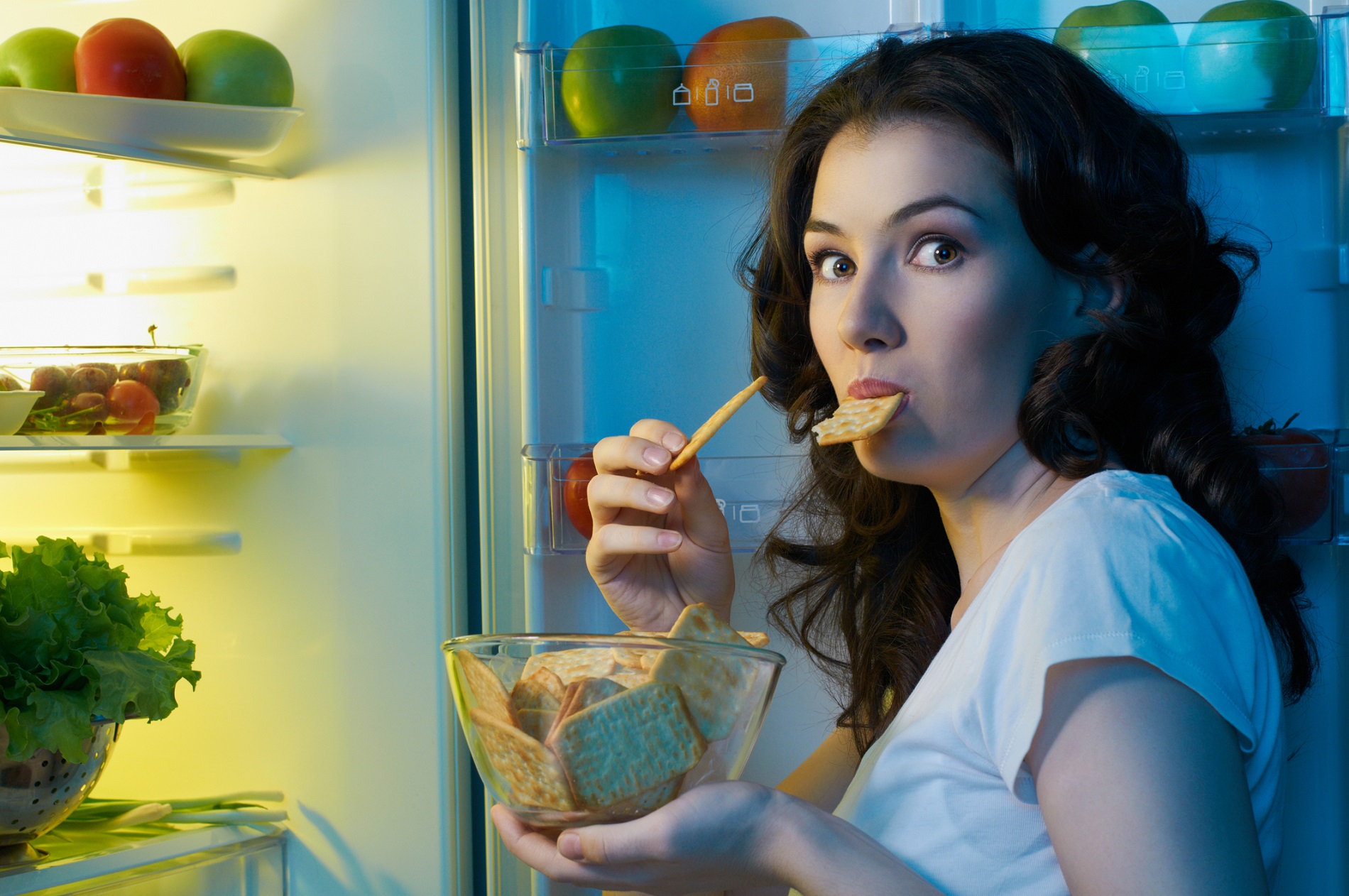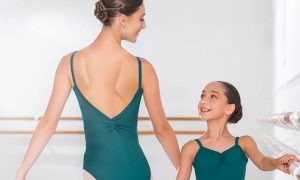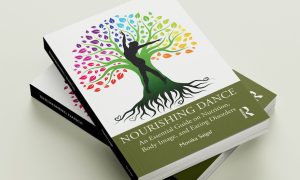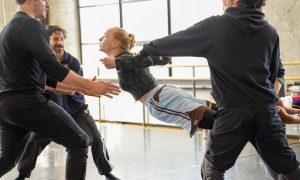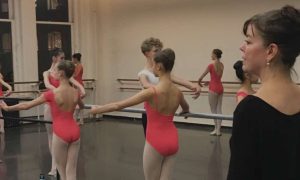It’s so important for dancers to get a healthy meal in the evenings after a long day of dancing. Your body needs to refuel to repair muscle damage, build new tissue and prepare for the next day. Sometimes, a dancer eats a perfectly reasonable dinner, and it’s not like they are still hungry, but still they have a hard time stopping eating. This is actually pretty common. So, after years of working with nutrition clients on this challenge, here is a list of quotes from real dancers about what worked (or didn’t work) for them. (Names have been omitted for confidentiality reasons.)
“I found that deleting Facebook for couple of weeks and limiting TV helped me in the beginning, as I would sit on Netflix watching ‘just one more episode’ and then realize I’d been eating the entire time I’d been watching!”
“I’ve started journaling in the evenings. Sometimes it’s hard to get started, but once I sit down and get going, I really get into it.”
“I like to write short stories. They’e not great, but it doesn’t matter; it gives me a creative outlet that’s not dance.”
“I like to use online software to create photo books.”
“Making an at-home spa is really good, with my favorite relaxing music. You don’t want to be munching away when you are all clean with a face mask, and you can’t do anything with wet nails except read a book.”
“I started doing crafts, which I liked, although I haven’t really kept that up.”
Emily’s Note: Find a craft, art or hobby you love and keep it up, make it a small side business, or share it with others.
“Emily has helped me learn how to plan out my meals and snacks ahead of time and do some food prep in the evenings so it’s easy the next day. I’m not always that organized about it, but at least I jot down some things on the back of an envelope. I actually have to write it all out or I’ll forget.”
“Making sure I have a good lunch and then an afternoon snack helps me to not be so hungry that I can’t be bothered to cook dinner and then just start snacking when I get in.”
Emily’s Note: This is absolutely key! It is so important to eat smaller, more frequent meals and snacks through the day so you’re not starving in the evenings.
“Staying well-hydrated and having water with dinner helps fill me up, and I feel less sore the next day.”
“I know sugary drinks are bad, but I have recently started heating a mug (maybe two) of vanilla soy milk in the evening. This feels indulgent, as it’s so sweat and creamy. It takes awhile to drink, so my body has time to realize that I don’t really need more food, I just needed something to satisfy that desire for sweet.”
Emily’s Note: This sounds wonderful. Add cinnamon or even a sprinkle of cacao powder.
“I don’t keep trigger foods at home!”
Emily’s Note: This is so key; I can’t state this enough. It’s not that you can never have your favorite treats, but make yourself go out to get them.
“I make sure healthy stuff is already prepared and at eye level when I get home and open the refrigerator.”
Emily’s Note: For example, pre-wash grapes and put them in a pretty bowl right at eye level in the fridge, or have carrots and sweet peppers already cut up and in a container that makes them easy to grab, maybe even with hummus.
“Swimming or an evening walk is really nice if it’s not cold outside or if you have access to a gym.”
“I’ve found doing my Pilates training is really good, as I have a new focus that I enjoy, and it challenges me so I will study for about one hour a day. I’ve actually stopped going to the gym because my hips were feeling tight, and while I should do some cardio I’ve found it’s helped me not to be as hungry and over-eat because I’m not pressuring myself to be thin by working out or thinking about how many [calories] I’ve burned on the cross trainer.”
Emily’s Note: Sometimes the calorie-counting equipment at the gym can lead to unhealthy over-exercise instead of a more healthy regimen of just cross-training for the purpose of strategically improving strength or stamina for their own sake or to prepare for performance. Cross-training is good, but overexercise can be detrimental.
By Emily C. Harrison MS, RD, LD of Nutrition for Great Performances.
 Emily Cook Harrison MS, RD, LD
Emily Cook Harrison MS, RD, LD
Emily is a registered dietitian and holds both a bachelor’s and master’s degree in nutrition from Georgia State University. Her master’s thesis research was on elite level ballet dancers and nutrition and she has experience providing nutrition services for weight management, sports nutrition, disordered eating, disease prevention, and food allergies. Emily was a professional dancer for eleven years with the Atlanta Ballet and several other companies. She is a dance educator and the mother of two young children. She now runs the Centre for Dance Nutrition and Healthy Lifestyles. She can be reached at emily@dancernutrition.com, www.dancernutrition.com


